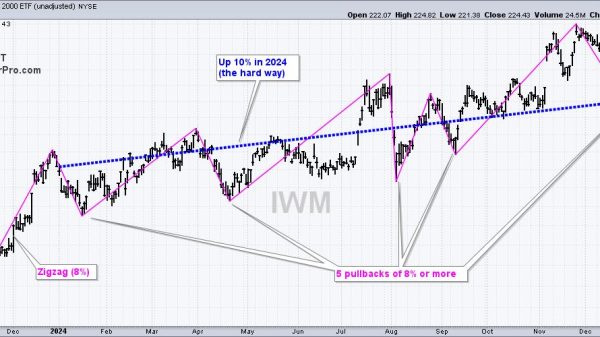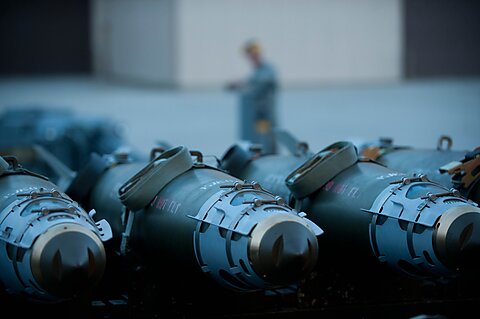Eric Gomez and Benjamin Giltner
US support for Ukraine and the strain that effort places on the defense industrial base are prompting concerns about US arms sales to Taiwan.
The United States is Taiwan’s largest foreign weapons supplier. However, it has not delivered arms to Taiwan promptly. The press has widely reported a backlog of $19 billion worth of weapons that the United States has sold but not delivered to Taiwan. Unfortunately, the US government has not publicly released a detailed breakdown of the backlog.
We have attempted to shine a light on the Taiwan arms backlog to better understand what it contains and examine recent trends in US arms sales to Taiwan. This first of three articles explains our methodology and examines the mix of asymmetric capabilities, munitions, and traditional capabilities that make up the backlog.
Overview
According to our dataset and as shown in Figure 1, the US arms sales backlog to Taiwan is $19.17 billion.
Our dataset also categorizes arms sales as asymmetric, munition, or traditional. Table 1 displays the complete list of backlogged weapons by category.
We define asymmetric capabilities as weapons that are mobile, relatively low cost, and counteract Chinese military advantages without emulating them. Asymmetric capabilities are widely regarded as Taiwan’s best option for defending against a Chinese invasion. Ukraine has demonstrated the value of asymmetric weapons for countering Russia’s stronger air and naval capabilities. Asymmetric capabilities make up $4.2 billion or 22 percent of the arms sales backlog.
We classify munitions as reloads for various types of weapons which are difficult to categorize as either asymmetric or traditional. The munition category in our dataset does not include munitions that are subcomponents of other sales. It only includes sales where a munition was the primary item. For example, a July 2019 $2 billion sale of Abrams tanks includes thousands of rounds of tank ammunition. However, we code this sale as traditional because the tanks are the primary component of the sale. Munitions make up $2.8 billion or nearly 15 percent of the arms sales backlog.
Traditional weapons are more capable and flexible than asymmetric weapons on a per‐unit basis, but they tend to have higher costs and require more advanced training. Typical examples of traditional capabilities are manned fighter aircraft, tanks, and surface warships. Traditional capabilities are well suited for responding to China’s coercive military activities.
However, traditional capabilities are expensive. This means that Taiwan cannot field as many of them. Moreover, traditional capabilities are easier targets in a high‐intensity war.
Traditional capabilities make up $12.1 billion or 63 percent of the arms sales backlog. Notably, by dollar value, only two US arms sales—an $8 billion F‑16 sale and a $2 billion Abrams tank sale—make up just over 50 percent of the entire backlog.
This means that well over half of the US arms sales backlog to Taiwan are traditional capabilities that will eat up a large portion of Taiwan’s limited defense resources and have minimal utility in defeating a Chinese invasion. Going forward, the United States should prioritize selling Taiwan more survivable and affordable asymmetric capabilities and munitions to keep Taipei from running out of reloads quickly in a conflict.
Methodology
We used two data sources to determine the composition of the US arms sales backlog to Taiwan: the Defense Security Cooperation Agency (DSCA) announcements of major arms sales; and the Stockholm International Peace Research Institute’s (SIPRI) Arms Transfer Database.
The DSCA issues notifications of all major arms sales to foreign countries. Our dataset’s starting point is all DSCA notifications of major arms sales to Taiwan.
Next, we used trade registers from SIPRI’s data to determine which US arms sales were fully delivered to Taiwan. Arms sales that were fully delivered were removed from the dataset. Arms sales that SIPRI listed as partially delivered (e.g. 10 tanks out of 100) were kept in the dataset at their full dollar value.
At the time of data collection, the SIPRI data stopped at the end of 2022. We also conducted online searches of news sources to determine if any items SIPRI marked as not delivered were delivered after SIPRI collected their data. Any DSCA sale announcement from 2023 was kept in the dataset because SIPRI’s data contained no instances of a sale being announced and delivered in the same year.
In the rare instances where SIPRI’s data mentioned a weapon transfer that was not mentioned in a DSCA announcement, we did not add the instance to our dataset. We only kept items that could be traced back to a DSCA announcement.
DSCA announcements include sales of contractor services and spare parts for weapons that have already been delivered to Taiwan. We do not include these maintenance items as part of the arms sales backlog because the weapons they support are already in Taiwan. The second article in this three‐article series will go into greater detail on these maintenance sales.
Finally, DSCA announcements do not always reflect the final dollar value of an arms sale, as these announcements are not finalized weapons contracts. Sometimes the final value of the sale is greater than what DSCA announces, and sometimes it is less. Our final backlog total is very close to the reported backlog total, however, so we regard the DSCA figures as close enough.
Taiwan Arms Sales Backlog Excel File
























